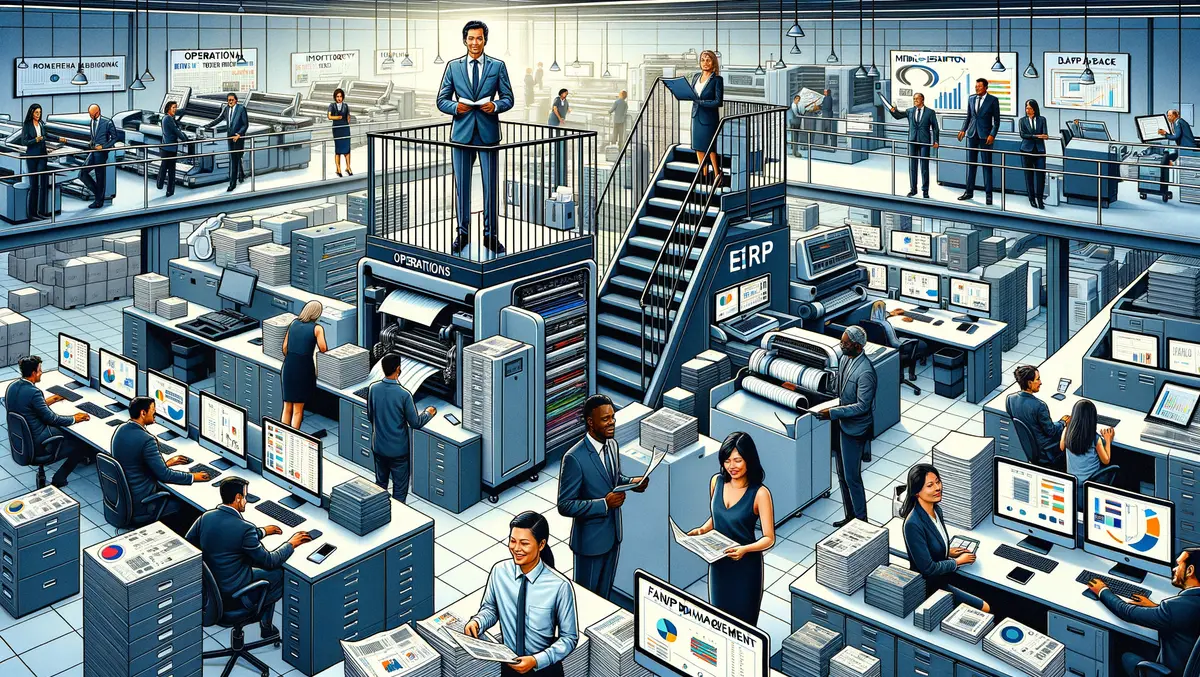
ERP systems revolutionise print management sector, says ECI executive
The print management sector is evolving rapidly, with more businesses opting for enterprise resource planning (ERP) systems to mitigate a multitude of operation challenges. This technology ensures smooth coordination between various departments by providing accurate real-time updates and data, and it is increasingly being recognised as a game-changer for managed print providers.
Josh McHugh-Cullen, the regional account executive at ECI Software Solutions, sheds light on the five significant ways ERP systems can help alleviate challenges for managed print providers:
Firstly, ERP systems break silos. Traditionally, businesses have relied on a collection of disparate software systems for inventory and financial management, but this often leads to data duplication and errors. Adopting an ERP system offers a unified platform for multiple operations within the business. Deemed as 'virtual co-workers', these systems ensure efficient management of tasks, from service calls and billing automation to forecasting the need for consumable replacements, thus enhancing accuracy and efficiency in service.
The second way ERP systems benefit providers is by reducing errors and the need for labour-intensive traditional procedures. With an ERP system in place, the entire workflow gets automated, producing a twofold benefit: ensuring greater accuracy in everyday tasks and freeing up staff to focus on value-adding activities such as exploring new service opportunities and enhancing client relationships.
Thirdly, an ERP system improves material and integrated management. It enables real-time monitoring of inks, solvents, equipment, accessories, spare parts, and other essential consumables. According to McHugh-Cullen, the ERP system acts as an invaluable tool by managing inventory efficiently, thus allowing the human workforce to focus on innovation, customer service, and operational excellence. By setting automatic reorder points, it ensures devices' uptime is kept close to 100 per cent, minimising potential service disruptions or business interruptions due to consumable shortages.
ERP systems also offer custom reports, which include detailed profitability analyses for contracts and equipment. This advanced feature empowers businesses with immediate, valuable insights into their operations, allowing informed decision-making and facilitating strategic planning.
Lastly, ERP systems are highly proficient at managing the entire lifecycle of contracts and equipment by automating many critical functions. They streamline processes like invoicing and provide alerts about contract or warranty expirations. Furthermore, they cover equipment tracks spanning the entire lifecycle from acquisition to disposal, a crucial feature that aids in reducing manual errors, improving operational efficiency and enhancing customer service.
McHugh-Cullen concludes, "When it comes to navigating through tough economic conditions, businesses need to avoid unnecessary spending and guessing. An accurate inventory system like ERP helps streamline operations and eliminate guesswork, which is crucial in times of tight budgets."


